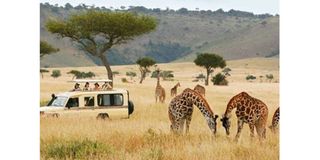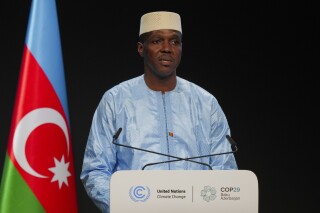
ARUSHA (Tanzania), Sept 23 (NNN-DAILYNEWS) — THE United Nations Development Programme (UNDP) has unveiled an ambitious plan to enhance the inclusive economy within Tanzania’s western tourism circuit.
This initiative aims to connect rural economies with the growing tourism industry in collaboration with a leading sports organiser.
At a press briefing in Arusha, UNDP Resident Representative Shigeki Komatsubara emphasised the organisation’s commitment to ensuring that tourism revenues benefit local communities surrounding Serengeti National Park, a UNESCO World Heritage site.
“Our goal is to empower local fishermen, livestock keepers and farmers, enabling them to effectively compete and integrate into the tourism value chain,” Mr Komatsubara stated, highlighting the aim to direct tourist dollars to the local populace.
During the kickoff of the Serengeti Safari Marathon, he noted that this long-term collaboration would create essential links between local suppliers of beef, horticultural goods and fish, the hotels and lodges within the Serengeti ecosystem.
The UNDP’s strategy seeks to forge robust tourism connections to stimulate economic growth, enhance social inclusion, empower women and youth and promote environmental sustainability.
“Our approach will encourage dialogue and involvement, connecting people to local resources for improved job prospects and quality of life,” Komatsubara remarked.
Tourism is a cornerstone of Tanzania’s economy, significantly contributing to national income, foreign exchange and poverty alleviation.
A recent study by the Netherlands Development Organisation (SNV) and the Overseas Development Institute (ODI) underscored tourism’s potential benefits for local communities.
However, the analysis titled ‘Tracing the Tourist Dollar in Northern Tanzania’ found that climbing Mount Kilimanjaro yields greater financial benefits for locals—28 per cent of the revenue generated—compared to 19 per cent from other northern attractions, including the Serengeti.
With approximately 56,000 climbers annually generating 50 million US dollars, around 14 million US dollars directly supports local livelihoods dependent on trekking.
Wages and tips received by climbing staff, often from disadvantaged backgrounds, represent a successful model of resource transfer from tourists to local communities.
Tourism in Tanzania generates 3.6 billion US dollars in revenue, accounting for about 17 per cent of GDP, creating over 1.5 million jobs and constituting 25 per cent of foreign exchange earnings.
Director of the Serengeti Safari Marathon, Timothy Mndika, expressed appreciation for UNDP’s ongoing efforts in promoting active sports tourism over the past six years.
“UNDP has been instrumental in invigorating active sports tourism in Tanzania, which in turn strengthens the rural economy,” he remarked.
The upcoming Serengeti Safari Marathon, scheduled for Nov 16, 2024, aims to attract 2,000 runners from around the world, contributing to local economic growth through tourism.
This event embodies three key principles: enhancing conservation, promoting tourism and benefiting local communities through active participation in sports tourism. — NNN-DAILYNEWS




